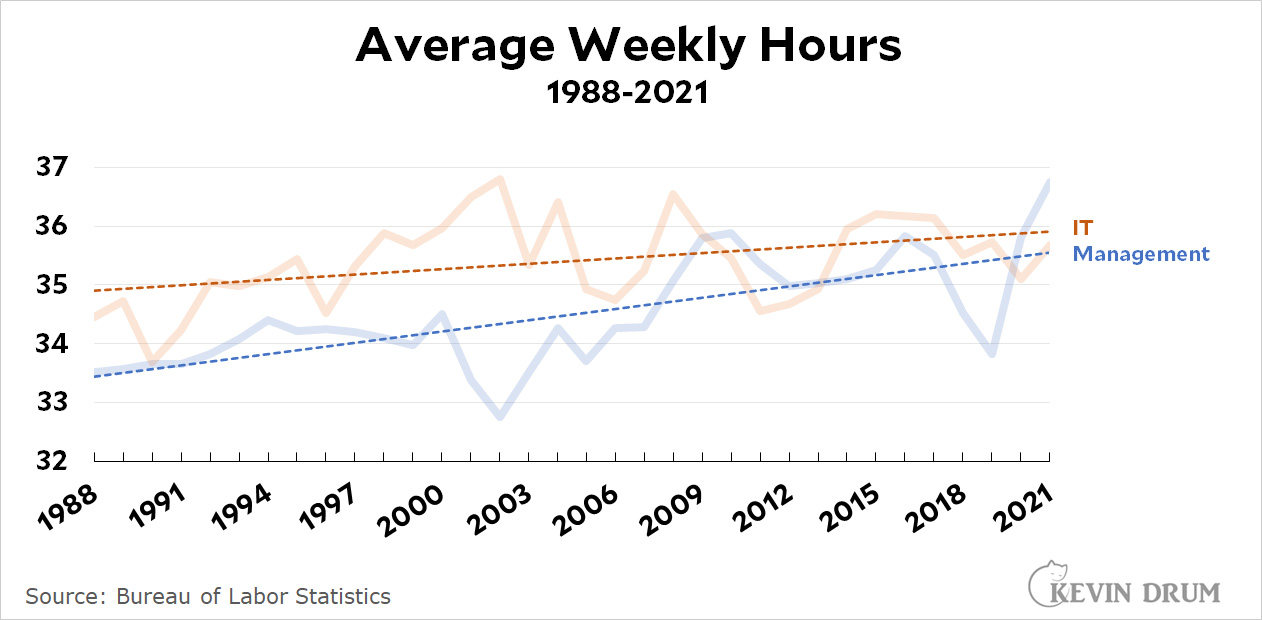There is no worker revolt
Earlier this week, the cranky and long-retired founder of Home Depot belched out his considered opinion about the state of today's youth—by which he apparently means anyone under the age of 70:
Nobody works, nobody gives a damn...."Just give it to me. Send me money. I don't want to work — I'm too lazy, I'm too fat, I'm too stupid."
There is, needless to say, no reason to take this even remotely seriously. Nonetheless, the Wall Street Journal sprang into action to declare a trend. "Where have all the go-getters gone?" it asks.
What follows is excruciating. They actually printed this, for example:
“The passion that we used to see in work is lower now, and you find it in fewer people—at least in the last two years,” says Sumithra Jagannath, president of ZED Digital, which makes digital ticket scanners. The company, based in Columbus, Ohio, recently moved about 20 remote engineering and marketing roles to Canada and India, where she said it’s easier to find talent who will go above and beyond.
Since the onset of the pandemic, several employees have asked for more pay when managers asked that they do more work, she says. “It was not like that before Covid at all,” she adds.
Employees asked for more pay when they were asked to do more work! How intolerable. So the company shipped their jobs overseas.
This is followed by a few more anecdotes, including one about an engineer who watched a TikTok that gave her the nerve to ask for a raise. So she did. And she got one! If the point of this story eludes you, join the crowd.
Another manager noticed that workers suddenly wanted to use more of their vacation time. How odd. What could possibly explain this after two years of being cooped up by a pandemic? Obviously they must be reassessing their entire work-life balance.
Then there are few quickly googled surveys that are obviously junk. But you never see this:
 Granted, this only goes through 2021 and both series are noisy. Still, it shows a steady rise in average hours worked over the past three decades for both managers (in all industries) and programmers. If you look at the same data for, say, retail or construction, you'll see no increase at all.
Granted, this only goes through 2021 and both series are noisy. Still, it shows a steady rise in average hours worked over the past three decades for both managers (in all industries) and programmers. If you look at the same data for, say, retail or construction, you'll see no increase at all.
In other words, the kind of people the Journal is bitching about are precisely the people who have been working harder and harder over the years. They might want a little break or a vacation after the pandemic, and they might even want a raise after a year of 8% inflation. But this hardly means they're a bunch of lazy ingrates. The Journal should be ashamed for giving a platform to a few hastily telephoned people who apparently think so.
No comments:
Post a Comment